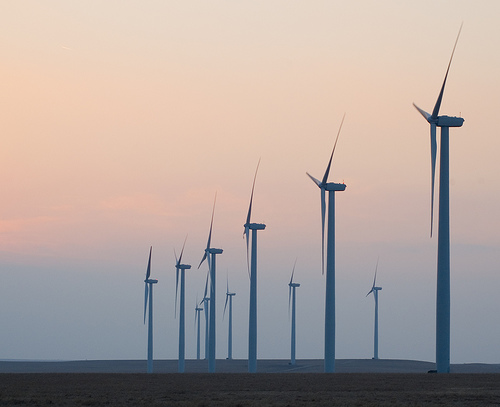Climate change is the over-riding challenge of our age. Even as I sometimes despair of our capacity to take action there is a small thrill in living in such a historic time. The whole of human history has come to this and we must make a choice as a civilization to adapt or, in all liklihood, die. In the very least there'll be hell to pay if we fail to rise to the needs of this moment.
As is often the case with complex problems we are challenged by climate change on two levels: adaptive and technical.
Technical challenges require the use of existing knowledge and skills to find a solution. The technical challenge here is political; we urgently require legislative action to limit and wind back our carbon expenditure. We must ensure that the price of goods reflects their true cost, not simply in the manufacture, distribution and marketing but also in the cost to the environment. We need an international agreement which has the developed world taking the lead but also the developing world following, with technology transfer to assist them along.
The only way we're likely to get this progress is through sustained organising and advocacy which will embolden far-sighted political leadership to facilitate a consensus. We did it with CFC's and can, and must, do it again.
This may be enough to prevent a catastrophe. The increasing cost of carbon and removal of government subsidies will make coal power increasingly uncompetitive and spur investment in renewable technologies.Cars will move through hybrids to plug-in electric vehicles and beyond. The cost of travel will rise and food grown locally will gain a cost advantage over that which prices-in thousands of miles of travel. The value of preserving forests for carbon credits will outweigh that of cutting them down, so much so that governments take their protection seriously.
We can progressively decarbonize in ways which will have surprisingly little impact on most people's lives, except those in the specific industries affected. No-one cares where their electricity comes from, they just want the light to work when they flick the switch. Likewise with cars, for most people they just need to work efficiently to transporting them from A to B. New cars invented in a carbon-conscious world will make today's internal combustion vehicles look like the dinosaurs they are.
However as we rise to the challenge of the climate crisis there is a second possible dimension we can address it on, as an adaptive challenge.
Adaptive challenges go beyond what we know how to do and require us to consider our values. Adaptive problems are often seen as threatening to someone or a group. There is often compromise and loss involved. In other words, adaptive problems are cultural, they force us to consider our values systems and priorities.
Climate change is an adaptive challenge because in addressing it we must consider our relationship with the planet. We must weigh profit in the present with environmental stability in the future; our wants against the next generations needs. We will have to give something up, from overseas trips to new appliances. For many it will cost them their job, forcing disorienting and frightening restructuring of communities. For some countries it may be the end of boom times as the world weens itself off coal and oil. While legislating is a largely technical exercise, reaching international consensus on action also requires adaptive leadership.
If we can manage these compromises, stand by those most affected both by the crisis and its solution, decarbonize our power and redesign our neighbourhoods, the change to our civilization could be much more profound than simply lowered levels of carbon emissions.
We could reconsider our relationship with the earth, understand ourselves as a part of a greater whole, and live in way which honours this symbiosis, focused on stewardship, sustainability and respect.
This is the change we should be aiming for.
This post was written as part of Blog Action Day 2009. Blog Action Day takes place each October 15 and united bloggers around the world in posting on the same theme, with the aim of sparking discussion of an issue of global importance. This year's theme is climate change.
[youtube=http://www.youtube.com/watch?v=3CnIJ19EVMo]
